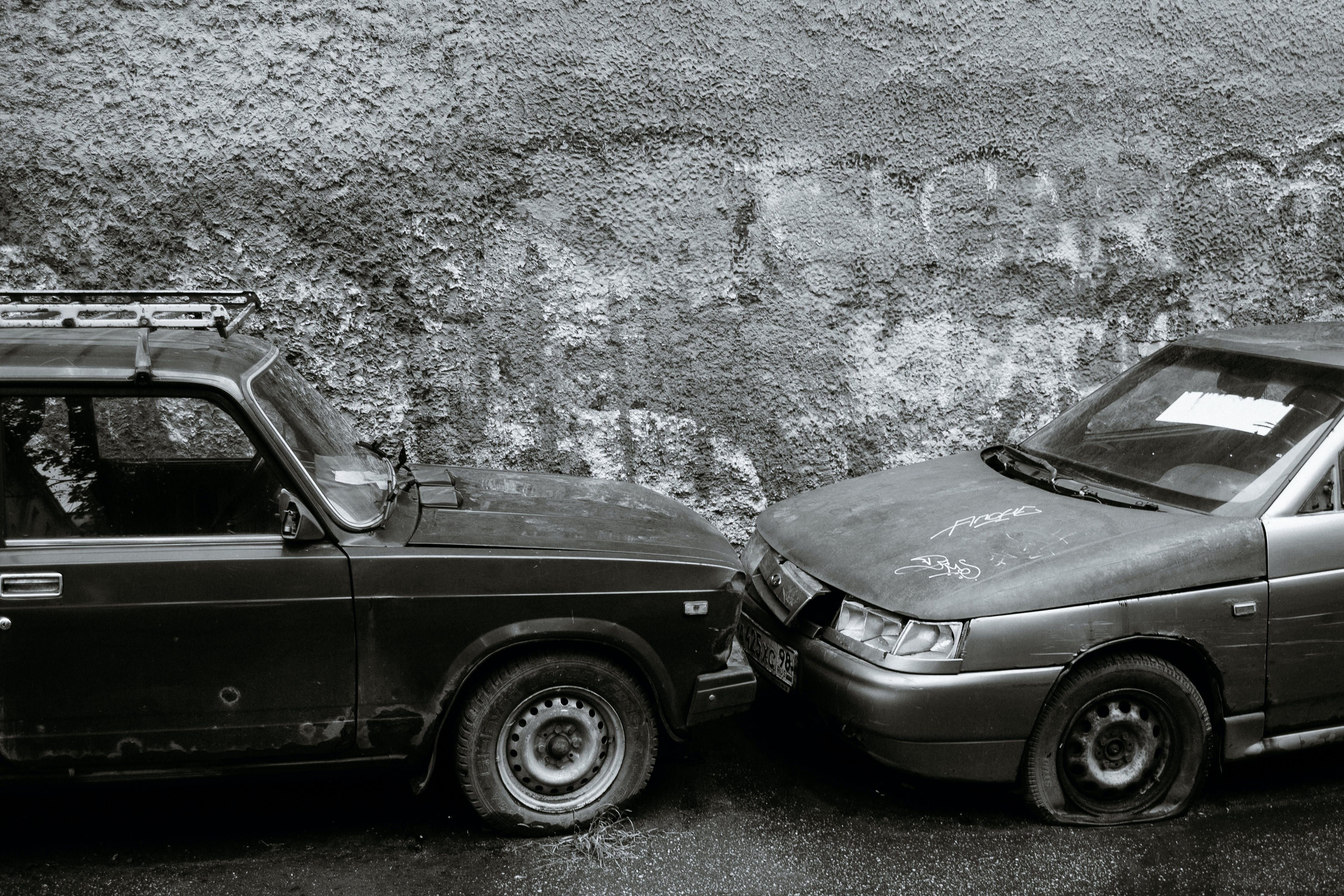The great capitalist lie (part 1)
On the myths of development and progress. As long as capitalism reigns supreme, poverty, hunger, and inequality will never disappear.
The poverty of our century is unlike that of any other. It is not, as poverty was before, the result of natural scarcity, but of a set of priorities imposed upon the rest of the world by the rich.
— John Berger
While many of us feel like there is something inherently wrong with the world — an existence spent on the endless pursuit of profit and growth — politicians, billionaires, die-hard capitalists, neoliberals, and other free-market enthusiasts would have us believe that this system is the pinnacle of what we can long for; that this world they have created is the best possible one.
They tell us it’s for the greater good. Yes, inequality may be increasing by the day, and the rich may be getting richer and richer while billions of people around the globe suffer and die in excruciating poverty, but, overall, people are better off than they’ve ever been before in human history… right? Inequality, after all, is just a side effect, an unfortunate consequence, distracting from the incredible achievements of capitalism.
It is true that all systems of socio-economic and political organization inevitably resort to promoting particular sets of fictitious fabrications and ‘necessary’ falsehoods to aggrandize certain narratives, yet this particular one appears so insidious, convincing, and powerful that it must, perhaps, be considered the most successful piece of propaganda in history.
To examine the monumental lies of capitalist progress and development (let us call them by what they are), we must first investigate their historical and ideological roots. In the following two parts of this essay series, we will then, by taking a closer look at those multitudes of statistics presented to us as the undeniable truth, systematically tear apart the bold claim of capitalist betterment and the supposed fact that we live ‘in the best of times.’
Let’s turn to history: It all began in the great land of opportunity, that haven of freedom and prosperity. World War II had just ended, and the American Empire taken its place in the sun as the leader and ruler of the ‘Free World.’
The myth of development
At his inaugural address to the nation on January 20, 1949, US President Harry Truman delivered a truly momentous speech whose echoes ring all the way to the present.1 The president’s advisers sought something to stir the public’s imagination; a remarkable, noble, and inspirational vision the American people would identify with. They invented the myth of development.
In ‘Point Four’ of his address, Truman announced that the United States and the Western World would assist ‘developing’ nations in reaching their full potential, once and for all putting an end to poverty, hunger, and suffering. The story he spun was one of selfless charity and sacrifices the Western nations were prepared to make to help their fellow human beings in the Global South.
These were ‘underdeveloped,’ after all; they were behind on the universal capitalist timeline to prosperity and happiness. And it was entirely their own fault. They had not yet adopted the correct values, had not figured out the right policies, were corrupt, had primitive institutions, had not worked hard enough, and lacked the enthusiasm and entrepreneurial spirit of Western men (and it was only men back then). These inherently racist and biased views were, of course, packaged into noble and publicly acceptable phrases the American people could rally behind.
Examining capitalism’s creation myth. A two-part series:
Americans were not entirely blind. On the rare occasions, they dared a glimpse beyond their borders, they saw a brutal world ruled by poverty, hunger, and suffering. Truman and other Western leaders, which shortly after obediently adopted this worldview, delivered an explanation. One they could live with. One which absolved them of any feelings of guilt. One which made them feel noble and superior. And, also, one that made them feel proud. Proud that thanks to their hard work and ingenuity, their Christian values, and their creativity they were further ahead on the timeline. And now they would help others.
Moral absolution
Harry Truman’s words were empty. As the following decades demonstrated, there were no plans of any kind to truly help the Global South. The speech served but one purpose: propaganda. It absolved the Western world of the crimes it had committed over decades and centuries. The misery and human suffering caused by hundreds of years of colonialism, imperialism, slavery, endless wars, and the relentless exploitation of ‘inferior’ peoples. The millions who died and suffered to enable Western Europe’s and, later, North America’s wealth and standard of living.
In a nation in which, at the very least, open racism and white superiority were increasingly frowned upon, this new story of development proved a convenient substitute. On the surface, it provided a reasonable and acceptable explanation for why human suffering and poverty persisted despite hundreds and thousands of years of technological and supposed societal progress. However, in reality, the myth of development was — and continues to be — nothing more than a form of repackaged racial discrimination under the banner of free-market capitalism.
This clouded view of the world proved so strong, so convincing, that it has persisted to this day. It is omnipresent. It sustains an aid industry worth hundreds of billions of dollars. A whole range of national and multinational charities, government institutions, NGOs, philanthropists, foundations, agencies, and private incentives bent on helping those who cannot help themselves. Almost all of it is a fabrication.
An industry of lies
The convincing tale of development, in the end, is just that: a story, a fantasy, an incredible piece of propaganda.
It follows wherever we go. TV and online advertisements from organizations such as World Vision or UNICEF, banners and posters, celebrities and billionaires ranging from Bill Gates and Jeff Bezos to Angelina Jolie and Bono, concerts and fund-raising events, marketing campaigns from multinational corporations to make customers feel better about themselves, charitable contributions for tax deductions, donation boxes and the likes in supermarkets and fast-food chains. They all tell us the same thing: if we did just a little more, if we donated just a little more money, we could solve all problems and, in time, eliminate hunger and poverty entirely.
A sort of ideological blackmail, as Mark Fisher put it.2 We all want this myth to be true. We want to believe we can make a difference and gradually improve the world. The fact is: hunger, poverty, and inequality are not in our hands. They are caused and sustained by systemic factors established by capitalist governments and institutions. It is not in their interest to change anything about that, for it would not be profitable. The delegation of guilt onto the individual helps sustain the status quo and keep those in power in their eternal seats.
The ideology of sustained poverty
Helping the poor and unlucky feels like Sisyphus rolling a boulder up a hill, only to have it roll back down as soon as one nears the top. All who have, at some point in their lives, volunteered for a good cause, especially younger generations, will recognize this feeling. Solving one problem immediately leads to the next. The issues and suffering are never-ending.
The reason for this is not that volunteers and aid organizations are not working hard enough — many of them are — but the fact that they are fighting symptoms while ignoring the systemic circumstances that cause and sustain poverty and inequality. While activists and volunteers do help people and change individual lives for the better, this approach will never solve the profound political and economic issues that have led to such a situation. Under such a system — a capitalist system — meaningful and lasting aid is made impossible.
Has history come to an end? Is this… it?
That is not to say that we should stop volunteering and helping those in need; on the contrary. It means that we must all step up our efforts and direct our frustrations at the people and institutions responsible for this ideology of sustained poverty: our governments, the United Nations, the World Bank, the IMF (International Monetary Fund), the WTO (World Trade Organization), the billionaire oligarchy ruling over all of them, and, finally, the system itself. A system that does not care about individual or collective well-being. A system designed for one purpose and one purpose only: profit. Profits for those in power, scraps for everyone else. Sustained and enabled by propaganda for all.
War for the future
The machinery, i.e. the aid industry, under the leading banner of governments and international, Western-dominated institutions such as the UN, the World Bank, the WTO, and the IMF, insists on telling us the feel-good story of how capitalist interventions and neoliberal policies have made the world a better place and reduced poverty and hunger all around the globe. When expressing skepticism upon such claims one is usually referred to the plethora of feel-good statistics that supposedly demonstrate just how wrong our subjective feelings are, and that, in fact, humanity is constantly improving on all metrics of prosperity and well-being.
In the following essay of this series, we will take a closer look at the most fundamental indicators of progress — hunger and malnutrition — and discover that the claims of progress and development just do not hold true.
Still, to end this on a positive (?) note: the myths are falling apart now. As the world moves ever closer to environmental, economic, and social collapse, and as the generations who built the lies disappear, they, too, will eventually vanish, leaving behind the truth.
To be blunt: We are responsible for hunger, poverty, inequality, for human suffering. It is us. Our fault. Not because we haven’t done or donated enough, but because we have failed in fighting this system in any meaningful way. For tolerating it, for even actively promoting it — and, most importantly, for being apathetic. Our generations will not be remembered well.
Yet, when the myths fade away, leaving behind the cold, hard reality of things, that is when change can and must happen. When revolutions, for better or worse, become inevitable. Perhaps, just perhaps, we can find moral absolution, after all. Perhaps our children and grandchildren will not despise us. Perhaps they will live.
Continue with part two of this essay series, in which we talk about hunger:
I’m author, writer, and activist Antonio Melonio, the creator of Beneath the Pavement. If you enjoyed this piece, please consider becoming a paid subscriber here on Substack or over on Patreon. It’s the best way to support Beneath the Pavement and help me put out more and higher-quality content.
If monthly contributions are not your thing (I understand), you can also leave me a tip or some coffee money over on PayPal. Thank you.
The full text of Harry Truman’s speech can be accessed here: https://www.bartleby.com/124/pres53.html
‘Capitalist Realism: Is There No Alternative?’ Mark Fisher, Winchester: Zero Books, 2009.








Thank you Antonio🙏
I agree it is past time for humanity to move beyond capitalism.
Here comes the annoying BUT--capitalism actually does create the means for prosperity. Marx argued this, and there's much evidence it is true. I don't think I would have believed it if I hadn't seen poverty decrease with my own eyes through capitalism in many places. All data bears this out. Global poverty has DECREASED as capitalism has spread throughout various countries. Life expectancies have risen, health has improved, etc., etc. It's not true that there were no non-capitalist societies where less want and deprivation was present but it was not at all the norm.
You don't have to agree with me about this but it seems like something anyone who wants to argue against capitalism should address. There are a lot of different ways to address it but it's not very plausible to claim that capitalism is nothing more than a cause of impoverishment as this is very clearly false.